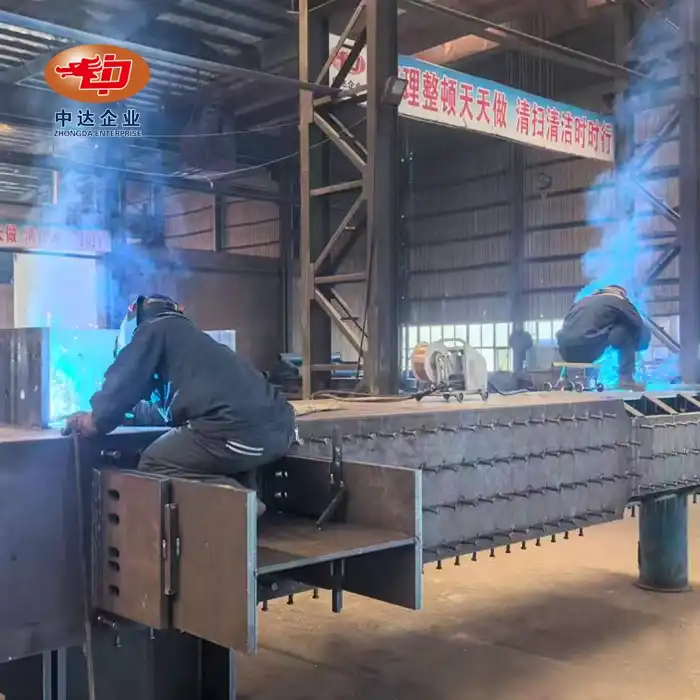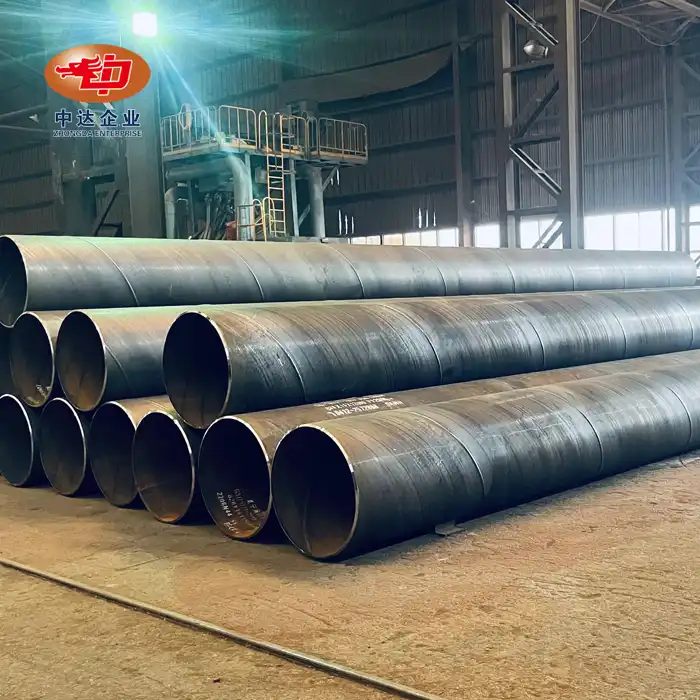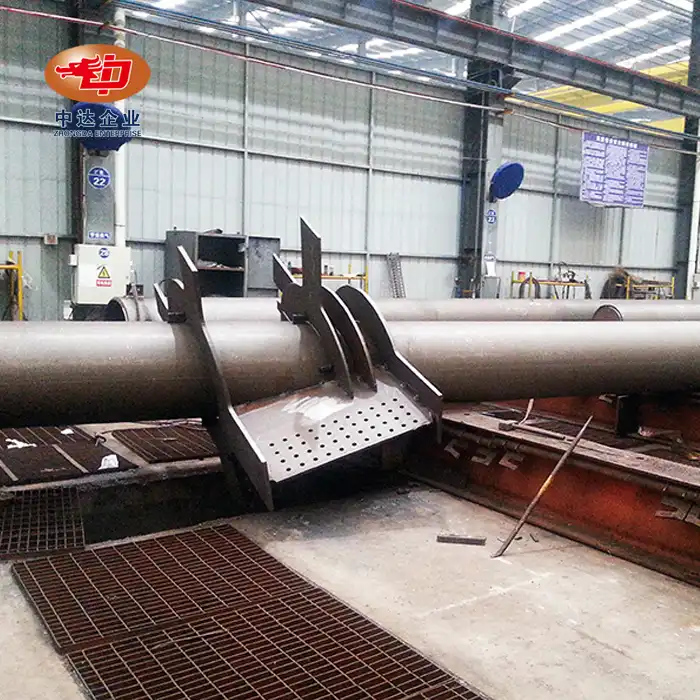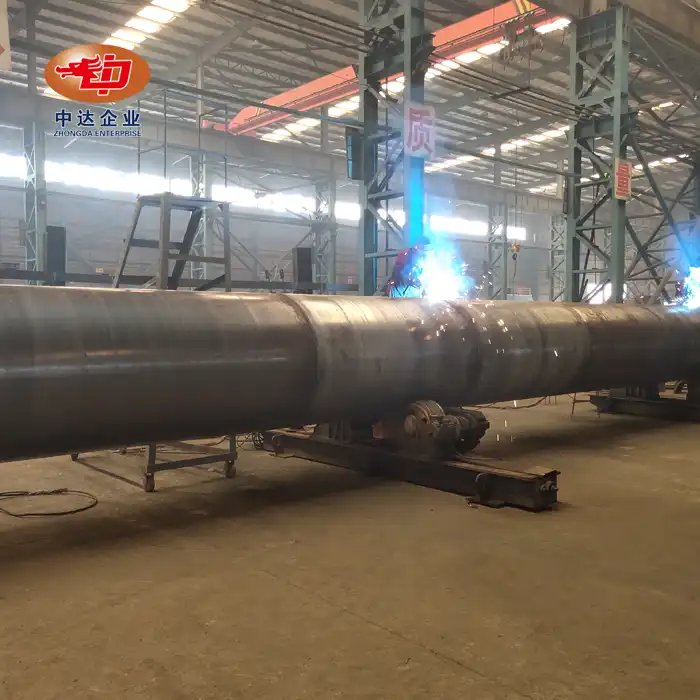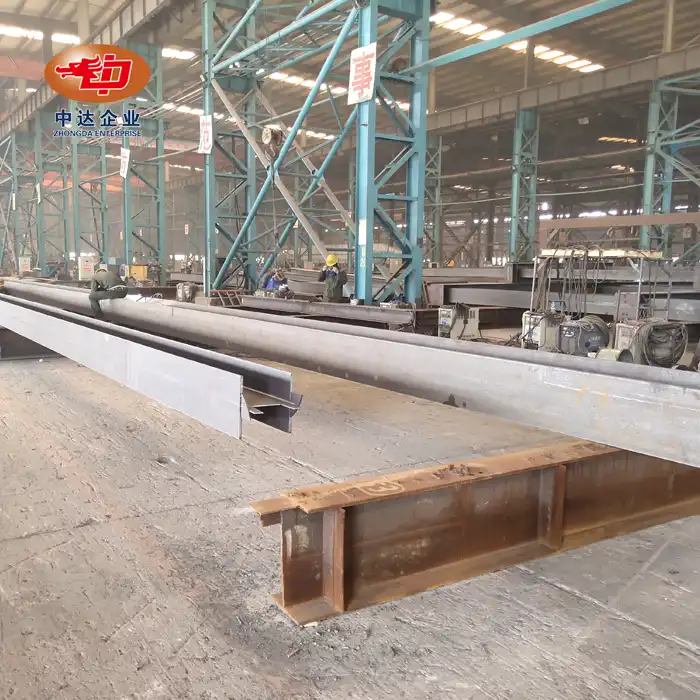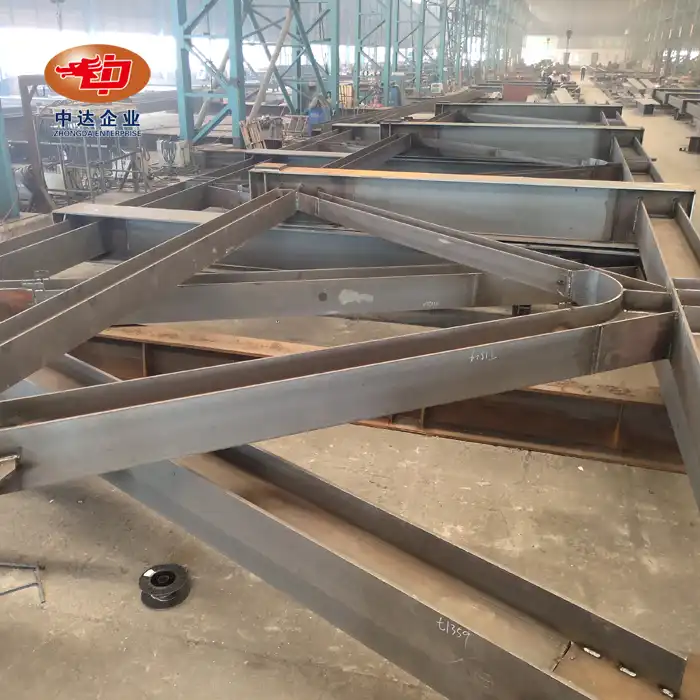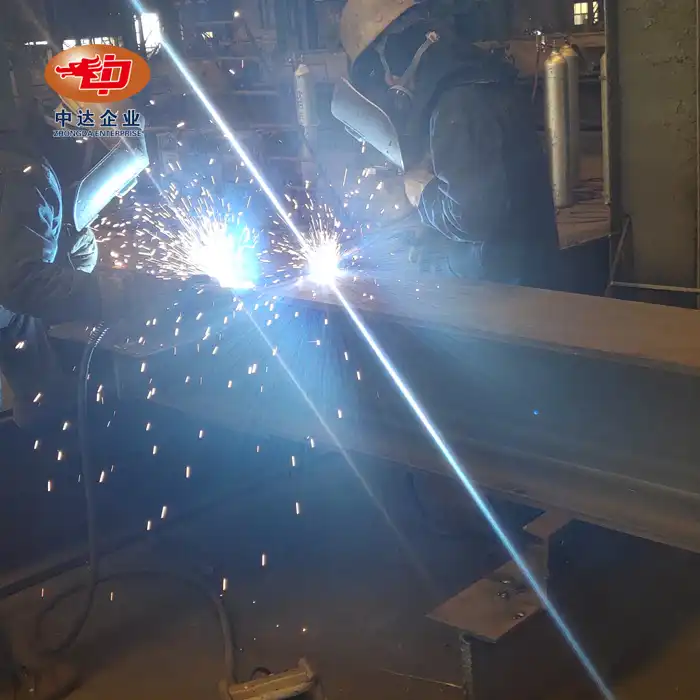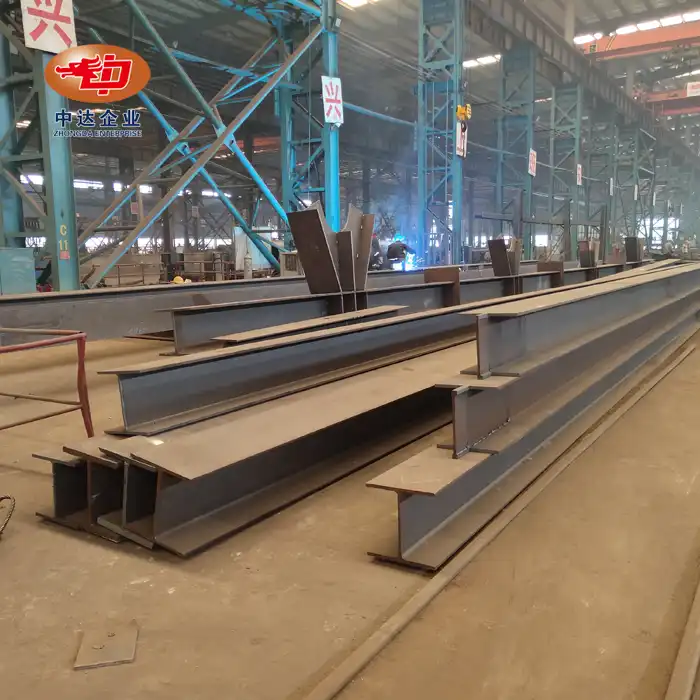At Zhongda Steel, we leverage our expertise in precision steel solutions to contribute to the development of cutting-edge high-speed rail infrastructure. Our BIM-driven prefabrication and ultra-thick plate cutting technology (±0.2mm accuracy) allow us to produce steel girders that meet the exacting standards required for these ambitious projects. With our ISO 9001/14001/OHSAS 45001 and EN 1090 certifications, we ensure that every component leaving our 120,000 m2 modern facility adheres to the highest quality and safety standards.
Design Considerations for High-Speed Rail Girders
Load Analysis and Structural Optimization
Designing steel girders for high-speed rail projects begins with a comprehensive load analysis. Engineers must account for static loads from the track and train weight, as well as dynamic loads caused by the high-velocity movement of trains. Advanced finite element analysis (FEA) software is employed to simulate various loading scenarios and optimize the girder's structural design. This process involves iterative refinements to achieve the ideal balance between strength, weight, and cost-effectiveness.
The optimization process also considers factors such as:
- Aerodynamic effects on the structure
- Fatigue resistance to cyclic loading
- Vibration characteristics and dampening requirements
- Thermal expansion and contraction
By meticulously analyzing these factors, engineers can develop girder designs that provide optimal performance under the demanding conditions of high-speed rail operations.

Material Selection and Properties
Choosing the right steel for high-speed rail girders is crucial. High-strength low-alloy (HSLA) steels are often preferred due to their superior strength-to-weight ratio and excellent weldability. These steels typically have yield strengths ranging from 350 to 690 MPa, allowing for lighter yet robust girder designs.
Key properties considered in material selection include:
- Yield and tensile strength
- Fracture toughness
- Fatigue resistance
- Corrosion resistance
- Weldability
At Zhongda Steel, we specialize in working with advanced steel alloys, including our proprietary -60°C Weathering Steel Anti-corrosion Technology. This innovative material offers enhanced durability and reduced maintenance requirements, making it ideal for high-speed rail applications in diverse environmental conditions.
Geometric Design and Cross-Section Optimization
The geometric design of steel girders plays a crucial role in their performance. Engineers carefully optimize the cross-section to maximize strength while minimizing weight and material usage. Common girder types for high-speed rail include:
- I-beams
- Box girders
- Plate girders
Each type has its advantages, and the selection depends on factors such as span length, loading conditions, and manufacturing considerations. Advanced computer-aided design (CAD) tools enable engineers to fine-tune girder geometries, incorporating features like stiffeners, diaphragms, and web openings to enhance structural performance.

Manufacturing Processes for High-Speed Rail Girders
Precision Fabrication Techniques
Manufacturing steel girders for high-speed rail demands exceptional precision. Modern fabrication techniques employ computer numerical control (CNC) machinery to ensure accuracy in cutting, drilling, and welding processes. Zhongda Steel's state-of-the-art facility utilizes advanced robotics and automation to maintain consistent quality across large production runs.
Key fabrication steps include:
- Plate cutting and edge preparation
- Assembly and fit-up of components
- Automated welding processes
- Post-weld heat treatment
- Surface preparation and coating application
Our ultra-thick plate cutting technology, accurate to ±0.2mm, allows us to produce girder components with unparalleled precision, reducing assembly time and improving overall structural integrity.
Quality Control and Testing
Rigorous quality control measures are essential throughout the manufacturing process. Non-destructive testing (NDT) methods such as ultrasonic testing, magnetic particle inspection, and radiographic testing are employed to detect any defects or inconsistencies in the girders.
Additional quality assurance steps include:
- Material certifications and traceability
- Dimensional inspections
- Weld quality assessments
- Load testing of prototype girders
- Coating thickness and adhesion tests
Zhongda Steel's comprehensive quality management system, certified to ISO 9001 standards, ensures that every girder meets or exceeds the stringent requirements of high-speed rail projects.
Transportation and On-Site Assembly
The logistics of transporting and assembling large steel girders present unique challenges. Careful planning is required to coordinate the delivery of girders to construction sites, often involving specialized heavy-haul transportation equipment. On-site assembly techniques may include:
- Bolted connections for modular assembly - Field welding for seamless joints
- Use of temporary supports and jacking systems
- Precision alignment and leveling procedures
Zhongda Steel's expertise in BIM-driven prefabrication allows for efficient on-site assembly, reducing construction time and minimizing disruptions to surrounding infrastructure. Our experience in delivering components for projects like Arctic bridges in Russia demonstrates our capability to handle complex logistical challenges in diverse environments.
Innovations in Steel Girder Technology for High-Speed Rail
Advanced Composite Materials
The integration of advanced composite materials with traditional steel girders is pushing the boundaries of high-speed rail infrastructure. Fiber-reinforced polymers (FRPs) are being used to create hybrid girders that offer improved strength-to-weight ratios and enhanced fatigue resistance. These composite solutions can lead to:
- Longer span capabilities
- Reduced maintenance requirements
- Improved corrosion resistance
- Enhanced vibration dampening properties
While still in the early stages of widespread adoption, composite girder technologies show promising potential for future high-speed rail projects.
Smart Monitoring Systems
The integration of smart monitoring systems into steel girders is revolutionizing maintenance and safety practices in high-speed rail. Embedded sensors and fiber optic networks allow for real-time monitoring of:
- Structural loads and stresses
- Vibration characteristics
- Temperature fluctuations
- Corrosion progression
This data enables predictive maintenance strategies, optimizing the lifecycle management of rail infrastructure and enhancing overall system reliability. Zhongda Steel is at the forefront of integrating these smart technologies into our girder designs, ensuring our products are future-ready and aligned with the evolving needs of high-speed rail operators.
High-Performance Coatings and Surface Treatments
Advancements in coating technologies are significantly improving the durability and performance of steel girders in high-speed rail applications. Innovative coatings offer:
- Enhanced corrosion protection
- Improved fire resistance
- Reduced friction and aerodynamic drag
- Self-healing properties for minor damage
Zhongda Steel's -60°C Weathering Steel Anti-corrosion Technology is an example of how cutting-edge surface treatments can extend the service life of steel girders, particularly in harsh environmental conditions. This proprietary technology reduces maintenance costs and ensures long-term structural integrity, making it an ideal choice for high-speed rail projects in diverse climates.
Conclusion
The engineering of steel girders for high-speed rail projects represents a pinnacle of modern structural design and manufacturing. From advanced material science to precision fabrication techniques, every aspect of girder production is optimized for performance, safety, and longevity. As high-speed rail networks continue to expand globally, innovations in girder technology will play a crucial role in enabling faster, more efficient, and more sustainable transportation systems. The future of high-speed rail infrastructure is bright, with steel girders serving as the foundation for this revolutionary mode of transport.
Contact Us
For cutting-edge steel girder solutions tailored to your high-speed rail project, trust Zhongda Steel. Our globally certified expertise, state-of-the-art manufacturing facilities, and commitment to innovation ensure that we deliver steel structures of unparalleled quality and performance. Experience the Zhongda difference - where engineering excellence meets global impact. Contact us today at Ava@zd-steels.com to discuss how we can contribute to the success of your next high-speed rail endeavor.











